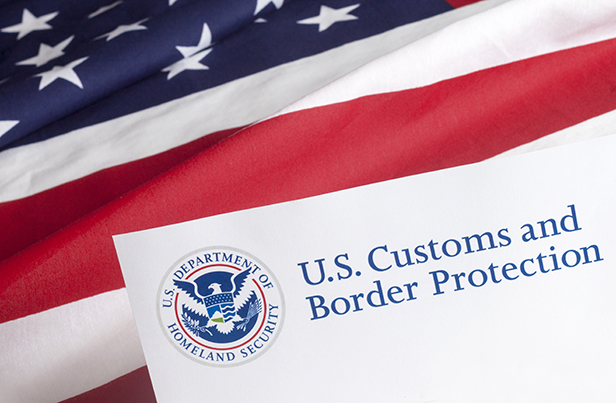September 15, 2020
Some Apparel From Xinjiang Subject to Seizure
The new order from the U.S. government has relevance for promotional products companies that source or sell products/materials with connections to Xinjiang, China.
Apparel, cotton, hair products, computer parts and other items produced by particular companies in the Xinjiang territory in northwestern China are now subject to seizure by U.S. custom agents following a new order from President Donald Trump’s administration.
U.S. Restricts Chinese Apparel and Tech Products, Citing Forced Labor
— Ana Swanson (@AnaSwanson) September 14, 2020
The restrictions fall short of a broader ban on cotton and tomatoes from Xinjiang that the administration was poised to announce last week https://t.co/xaJOsJVGCd
The U.S. Department of Homeland Security’s (DHS) Customs and Border Protection (CBP) issued the Withhold Release Orders on the companies’ products on Monday, Sept. 14, saying the items are produced with state-sponsored forced labor.
CBP says the Chinese government engages in systemic human rights abuses against the Uighur people, an ethnic minority of primarily Islamic faith whose members are allegedly pressed into labor in factories and on cotton farms in Xinjiang.

“By taking this action, DHS is combating illegal and inhumane forced labor, a type of modern slavery, used to make goods that the Chinese government then tries to import into the United States,” said Acting DHS Deputy Secretary Ken Cuccinelli.
If products are subject to a Withhold Release Order, they can be imported to the United States only if the importer can demonstrate to customs officials that the items were made without any forced labor, The New York Times reported.
U.S. Restricts Chinese Apparel and Tech Products, Citing Forced Labor
— Ana Swanson (@AnaSwanson) September 14, 2020
The restrictions fall short of a broader ban on cotton and tomatoes from Xinjiang that the administration was poised to announce last week https://t.co/xaJOsJVGCd
Such proof can be obtained with the help of measures like extensive audits of manufacturing facilities, but such audits can be difficult to execute in Xinjiang, where authorities allege there’s a possibility that forced labor may have some role in making an end-product given the region’s murky supply chains.
If an importer can’t provide proof that the products are free of forced labor, then the items must be sent back to China or surrendered to customs agents for detention.
“Today’s Withhold Release Orders send a clear message to the international community that we will not tolerate the illicit, inhumane, and exploitative practices of forced labor in U.S. supply chains,” said Acting CBP Commissioner Mark A. Morgan.
The Withhold Release Orders apply to: apparel produced by Yili Zhuowan Garment Manufacturing Co., Ltd. and Baoding LYSZD Trade and Business Co., Ltd; cotton produced and processed by Xinjiang Junggar Cotton and Linen Co., Ltd; computer parts made by Hefei Bitland Information Technology Co., Ltd.; all products made with labor from the Lop County No. 4 Vocational Skills Education and Training Center; and hair products made in the Lop County Hair Product Industrial Park.
The New York Times reported that Hefei Bitland has said on its website that its cooperative partners include major technology companies such as Google, HP, Haier, iFlytek and Lenovo. Yili Zhuowan has produced gloves for the French clothing brand Lacoste, according to the Workers Rights Consortium, a nonprofit.
China produces about 85% of its cotton in Xinjiang. That production accounts for about 20% of the entire world’s cotton supply. Ralph Lauren, Tommy Hilfiger, Costco and Hugo Boss are among the brands that have been connected to Xinjiang factories and/or materials.
The majority of promotional products sold in the United States are produced in China.
In December 2018, an Associated Press investigation tied North Carolina-based promo apparel supplier Badger Sportswear (asi/37876) to a factory using forced labor in Xinjiang. Badger severed ties with the apparel manufacturer, but received backlash from clients, including colleges and universities that broke off business with the supplier.
Since the 2018 forced labor scandal, Badger Sportswear says it has enhanced its social compliance program. The supplier says it has audited all owned and contracted facilities and implemented an annual monitoring program.